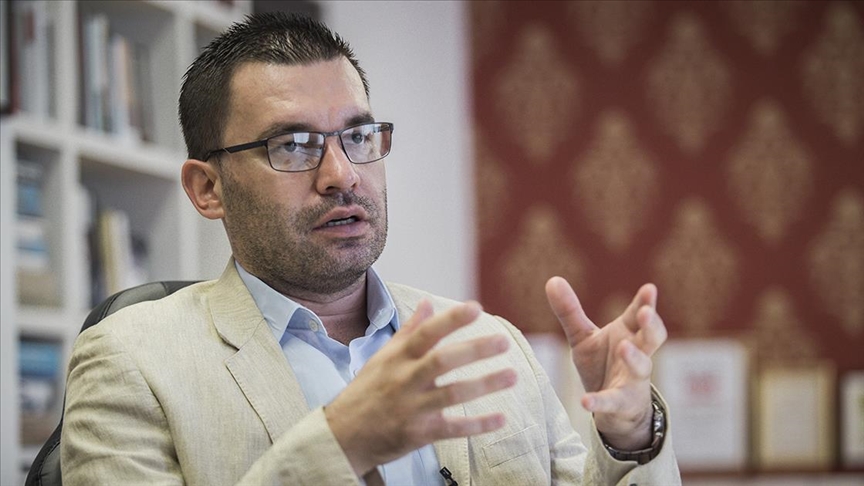Ignoring the marking of the unconstitutional January 9 Republika Srpska Day, which traced the genocide against Bosniaks in Bosnia and Herzegovina, is no longer allowed and it is high time for a stronger reaction by international factors and domestic institutions.
Probosan leaders and representatives of all levels of government, and especially the High Representative, must do more if they want to stop these provocations. Unfortunately, these reactions are absent, as are the reactions of the BiH Prosecutor's Office, which is not doing its job, says Muamer Džananović, associate of the UNSA Institute for Research on Crimes against Humanity and International Law.
"They must do more to prevent attacks on the state of Bosnia and Herzegovina. But also threats, deprivation of basic human rights, security threats and various other parades that are organized on a daily basis in front of the homes of a small number of Bosniaks, Croats and other citizens who live in Republika Srpska," Džananović points out.
It chronologically recalls a series of unconstitutional, illegal decisions made during 1991, which were finalized on January 9, 1992.
"On this day, January 9, 1992, at the 5th session of the self-proclaimed "Assembly of the Serbian People in BiH", the Declaration on the Proclamation of the so-called "Republic of the Serbian People in Bosnia and Herzegovina" was adopted. It is stated that this self-proclaimed Republic is located as part of the Federal State of Yugoslavia, which at that moment was actually greater Serbia, and in Article 3, among other things, it was stated that "territorial demarcation with the political communities of other peoples of Bosnia and Herzegovina" should be carried out. Continuity and consistency of the implementation of that policy and those fascist goals is also visible in the example when Radovan Karadžić read the "strategic goals of the Serbian people" on May 12, 1992, at the 16th session of the self-proclaimed "Assembly of the Serbian People", which was held on the 4th month and 3 days after the one held on January 9, 1992 in Bosnia and Herzegovina" which was adopted by the Assembly. What they emphasized on January 9, 1992, they repeated with the 1st goal, which states that the "state demarcation from the other two national communities" should be carried out," Džananović points out.
He reminds that a total of six goals were adopted that could only be realized through genocide, which was decisively emphasized by Ratko Mladić at that session, but they were consistently implemented by many perpetrators, including Karadžić and Mladić, who are currently in prison, sentenced to life imprisonment. imprisonment and, among other things, genocide against Bosniaks.
"Today, their photos are carried through the streets and pasted on official institutions in East Sarajevo, throughout Republika Srpska and Serbia. The arrival in East Sarajevo of Ivica Dačić, Minister of Foreign Affairs of Serbia, and the arrival of other officials from Serbia symbolizes the confirmation that official Serbia does not deviate from its centuries-old territorial expansionist goals towards Bosnia and Herzegovina. For example, at the beginning of January 1992, Dacic wrote in the SPS party magazine that "in one way or another, the Republic of Serbia, Montenegro, the Republic of Srpska Krajina and the Srpska the Republic of Bosnia and Herzegovina (which includes the Autonomous Region of Krajina, SAO Northern Bosnia, SAO Semberija, SAO Romanija and SAO East Herzegovina). Dacic emphasized that this is a total of 12 million citizens," reminds Džananović.
He reminds that during the siege of Sarajevo, the aggressors knew what they were doing.
"They wanted to kill culture, history, they wanted to violently end the fact that Sarajevo is a multi-ethnic, multicultural and multi-religious center of Europe. They wanted to kill the spirit of Sarajevo and Bosnia and Herzegovina. And with today's act and parade, they want a reaction in order to get an argument for their goals from which they do not give up. Today, as then, during the aggression, the international community only observes it and with its attitude stimulates the next steps of those who attack our homeland. I believe that true reconciliation in our homeland will not happen until there is a massive rejection of the evil ideology that is led to mass crimes and genocide. Today, that ideology is glorified and celebrated a few kilometers from us. Unfortunately, it seems that it has no less followers today than in 1991 and 1992," Džananović points out.
Source: Klix.ba
